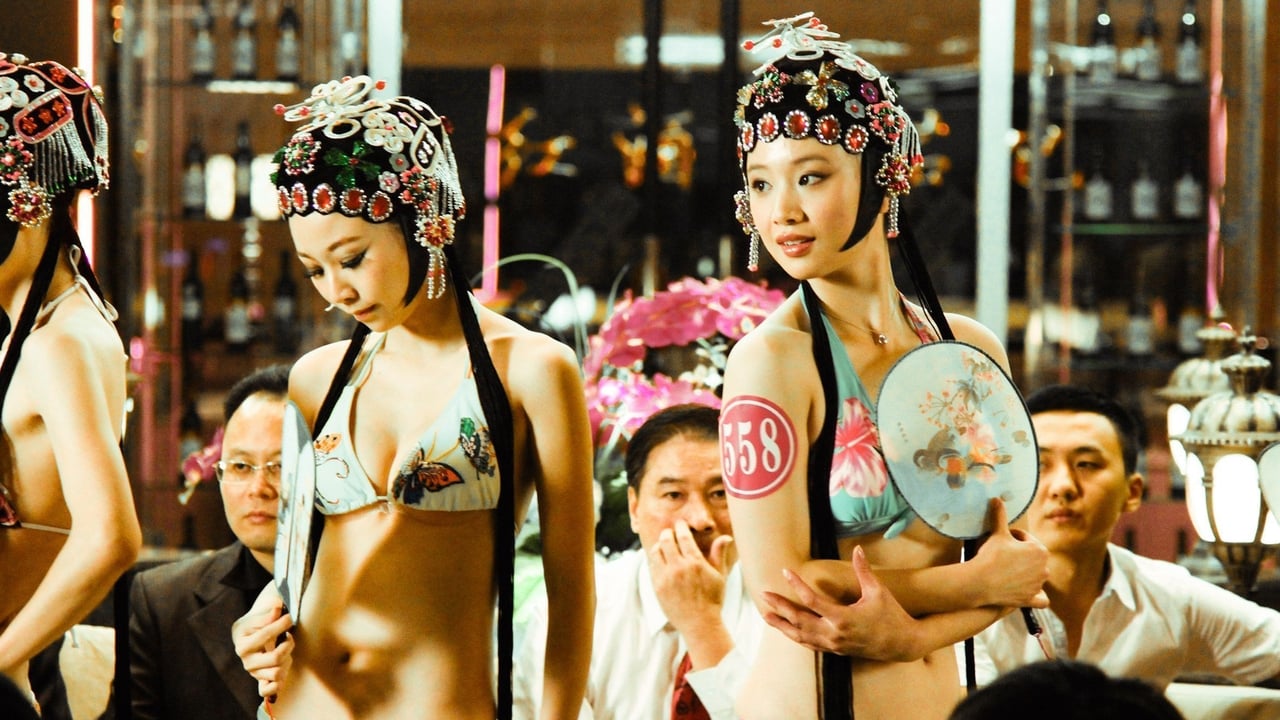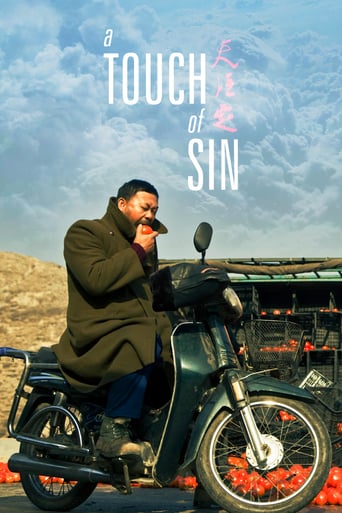

Since I viewed 'The World' and 'Still Life' from director Jia ZK a few years back, I have become a fan of this 6th generation film director from China. In this film he explored the ugly side of China, amid its prosperity (at least for some), GDP growth and blatant capitalism. It is about the contrast between the average person trying to make a decent living, and the corrupt officials and bandits that got rich quick. The film contains 4 stories, loosely linked together. Corruption, prostitution, social injustice, stressful lives of migrant workers in the World's Factories in the southern part of the country are all the issues explored and exposed here. Gosh, I am glad this film was allowed to be made by the Chinese government. I bet Jia's international fame has something to do with it.All in all, I enjoyed the film greatly. I once worked and lived in China for a number of years so the stories relate to me quite easily. For now, I hope Jia can continue to do his work, with the freedom and liberty that he has so far enjoyed. I look forward to more of his work.
... View MoreI found this Chinese film, like many other foreign language pictures in recent years, in the pages of the book 1001 Movies You Must See Before You Die, I hoped it would be another worthy entry. Basically set in present day modern China, apparently based on real events from the recent past, the film revolves around four characters from vastly different geographical locations of the country, and of different social backgrounds and surroundings. The stories, ranging from the busy southern metropolis of Guangzho and Donggaun to the more rural areas of towns such as Shanxi, see each character committing a random act of violence, and the individual stories focus on their often bizarre reasoning behind them, and whether they can get away with it, or face the consequences. Dahai (Wu Jiang) is an angry miner, enraged by widespread corruption in his village, he decides to take justice into his own hands. Zhou San (Baoqiang Wang) is a rootless migrant who discovers the infinite possibilities of owning a firearm, and it seems that anybody could be his next target. Xiao Yu (Tao Zhao) is a young receptionist who dates a married man man and works at a local sauna, but she is pushed beyond her limits by an abusive client, so goes out of her way to make them pay. Xiao Hui (Lanshan Luo) is a young factory worker who goes from one disheartening job to another, and he only faces increasingly degrading circumstances, it is unclear what truly leads him to off the edge. The four overlapping stories of characters going to extremes for different, mostly minor or bizarre reasons, are all interesting, their violent turns are the most memorable moments, and to see how they get on following their kills or whatever, there's a good amount of bloody stuff, it also works as a satirical look at how economic transformation changes people, a great drama. Very good!
... View MoreThe director has so much to express, which makes the film loose. He wants to show the whole picture of modern China by referencing lots of news in the stories. But it weakens the story itself. The fourth fragment is most representative. It seems not so reasonable.A few actors are great, like Wu and Tao, while others do not their roles. Baoqiang is not ferocious enough as a professional robber. Some guest actors are unnecessary, even ruin this movie, such as Sanming.Anyway, we should show respects to both Zhangke and this movie. He really wants to express his anxiety about this sick society. He reminds us this situation is unstable and unsustainable. We are on the edge of a crash.
... View MoreA Touch of Sin by Chinese director Jia Zhang-Ke tells 4 independent stories that culminate in some act of violence in modern China. It feels that the movie's intention is to portrait the reality of a generation that feels confused and out of place on a new reality that clashes modern capitalism with former communism. We understand that, however its hard to accept this is successfully achieved on the movie. Those elements are introduced yes, but... they feel like an excuse for what will predictably come next. The movie is greatly directed: that is its main strength and its worth watching for that, but the structure of 4 independent stories doesn't allow an emotional connection with the viewer, and the violence ends up being predictable and sometimes silly. This would have worked well as 4 separated short movies independently. That would have been powerful. Unfortunately, the theme that connects them is not sufficient to justify the movie as a whole, which is odd since this was the winner for best screenplay on Cannes. This asked for more depth and a more cohesive plot. At the end, the social meaning isn't but a cloud hanging over 4 good short stories that are technically wonderful but fail to go beyond its intentions of being a relevant portrait of China's modern society. Visit thefadingcam blog on blogspot for this and other reviews! Also like us on facebook to follow all our reviews!
... View More